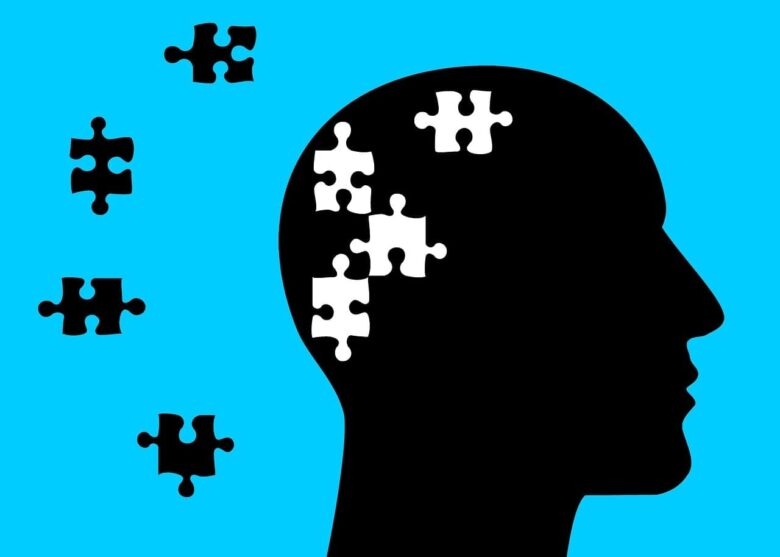Dementia is believed to affect around 450,000 Australians with approximately 70% of those affected suffering from Alzheimer’s. In short, it’s a serious condition and currently has no cure.
Naturally, research has been ongoing for many years in a bid to find the cause of Alzheimer’s and develop treatment plans, a possible cure, and even prevention. At present, there are still more questions than answers. But, research is helping us to understand the issue and identify risk factors.
By understanding what constitutes the biggest risk you can change your lifestyle to eliminate these and reduce your risk of Alzheimer’s.
What Is Alzheimer’s?

If you suspect you, or a loved one, has Alzheimer’s then you need to see a doctor and a neurosurgeon like sydneybrainandspine.com. They can map your brain to identify any areas that appear to be struggling and help you to confirm whether you have Alzheimer’s or something else.
Alzheimer’s is the most common form of dementia. It starts with memory loss, often very small details are forgotten Over time the memory loss becomes worse and sufferers will find it hard to carry on a normal conversation. It’s common for short-term memory to be affected first, making it hard to have a conversation and be part of everyday situations.
Sufferers tend to slip back in time to a period they can remember. This can make it difficult for their loved ones to connect. Over time the disease will affect the brain’s ability to speak, remember, and even undertake everyday activities.
Reducing your risk of Alzheimer’s doesn’t just mean you will enjoy life more in old age, it also reduces the burden on your loved ones. It can be very challenging to deal with a loved one that has Alzheimer’s as they will not always understand you are doing what is best for them.
Alzheimer’s Risk Factors

Although scientists do not yet understand what causes Alzheimer’s, they do know that certain things increase the risk. These include:
Age
Alzheimer’s generally affects people over 65 although it is possible to get it at a younger age.
Family
If you have a history of Alzheimer’s in your family then it is more likely that you will get it. But, this doesn’t mean you will, it simply increases the risk factor.
Unhealthy Lifestyle
Increasingly research is showing that an unhealthy lifestyle increases your risk of heart disease, cancer, diabetes, and even Alzheimer’s. This is one you can exercise a lot of control over!
In fact, there are 5 things you can do, starting today, that will help to reduce your risk of Alzheimer’s.
1. Regular Exercise

Doctors recommend you get 150 minutes of moderate exercise every week. This is when you are exercising to elevate your heart rate but you are still capable of having a conversation. It doesn’t matter what activity you choose, as long as it gets your blood pumping.
In fact, you should specify something that you enjoy doing, this will help to ensure you keep doing it.
Exercise increases blood flow throughout your body. This boosts the supply of nutrients and the removal of toxins from cells, including brain cells. Ensuring your brain has everything it needs to function properly can’t be a bad thing!
2. Brain Training
Your brain is a muscle that needs to be used if you want to maintain its capabilities. This is the same as any other muscle in your body, use them and they stay strong, stop using them and they will gradually waste away.
The best way to keep using your brain is to challenge yourself. That means doing brain-training puzzles and learning new skills. You are never too old to learn a language or any other skill that you want. By challenging yourself you are forcing your brain to keep working. This helps to keep your cells healthy and reduces the likelihood of Alzheimer’s.
3. Healthy Eating

You don’t need to commit to eating salad every day and nothing else! Healthy eating isn’t about depriving yourself of anything. It’s about ensuring you eat everything in moderation. One of the best ways to maintain balance, and therefore healthy eating habits, is to ¼ fill your plate with protein, ¼ with carbohydrates, and the rest with vegetables.
You can add in a few healthy oils and even a dessert but you should avoid snacking between meals. This will help to reduce the risk of a variety of age-related diseases, including Alzheimer’s.
4. Social Connections
In order to keep your brain active, you need to have a purpose in life. This can seem harder to find in retirement. The best way to ensure you stay relevant and maintain good brain cognitive abilities is to meet people and engage in social interactions.
This challenges you and helps you to feel both appreciated and wanted. You’ll find these feelings are essential in keeping you feeling young and open to new challenges. That’s essential if you want to avoid or reduce your risk of Alzheimer’s.
5. Monitor Blood Pressure

Blood pressure is a great indicator of future issues. High blood pressure suggests an increased risk of heart disease, diabetes, and other conditions, including Alzheimer’s. Of course, having high blood pressure can go completely unnoticed for a long period.
That’s why it’s essential that you have your blood pressure tested regularly. If it starts to become elevated there are lifestyle changes you can make and even medications to help control the issue and reduce your risk of various diseases, including Alzheimer’s.
Final Thoughts On Reducing Risk Of Alzheimer’s
The great thing about the above methods is that they don’t just reduce your risk of Alzheimer’s. Simply taking a little more care of yourself can help you ward off a variety of age-related illnesses. This means you can enjoy a higher quality of life as you age.
Even better, the above ways to reduce risk are not difficult to implement. You simply need to incorporate a little exercise, challenge your brain and think more about what you eat. It will become second nature in no time.

